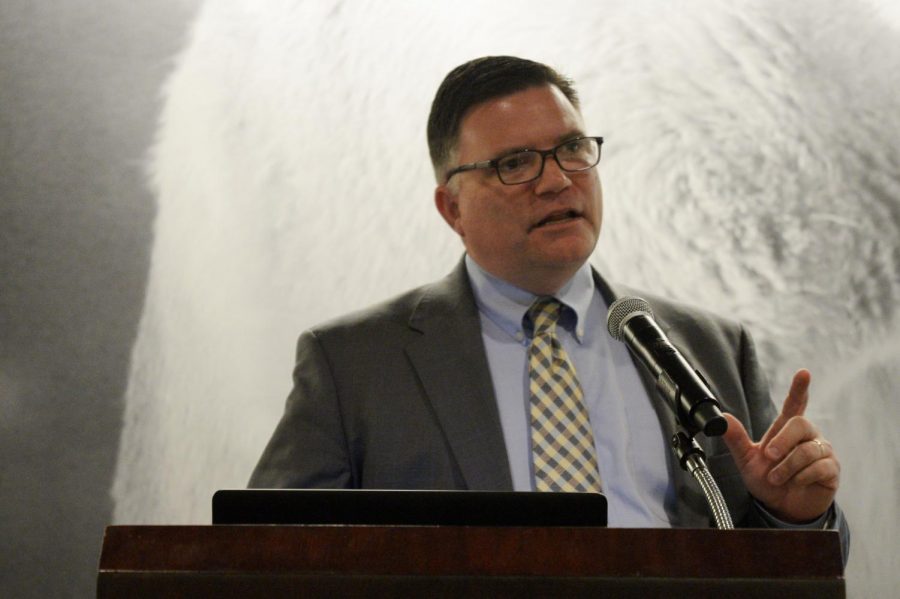AVP finalist stresses success, diversity for colleges
Preston said colleges should prepare for a diverse generation
MICHAEL LINDER | The Daily Evergreen
Michael Preston, a finalist for associate vice president of student engagement, talks about his experience and why he should be selected for the job.
March 21, 2018
Michael Preston, candidate for the associate vice president of student engagement, discussed his strategy for structuring student success and diversity with faculty and staff Wednesday.
Since July 2015, Preston has served as executive director of the Florida Consortium of Metropolitan Research Universities. This entailed working on projects designed to increase retention, graduation rates and ensure graduates are career ready.
“For the success of students, we should have an assessment that measures learning and tracks progress,” Preston said. “If it doesn’t end in something, then why are we doing it?”
He said every student’s success should be dependent on engagement equaling employability, so they feel comfortable whenever they sit down for a job interview.
Preston also said as part of the Florida Consortium, he works with a significantly diverse group of students.
“One of the great things about the work that I do is that I get a chance to work with so many students who are the first in their family to go to college,” Preston said. “They are themselves either DREAMers, or they come from families where they have immigrated to the United States.”
Preston felt that this is what the community in college will look like in the next 20 to 30years — something the school has to be prepared for, because those students are going to be the future of the U.S.
“One of the great things about a lot of first-generation students from other countries is that they can speak more than one language,” Preston said. “That’s more than I can say, and that’s certainly something I believe is a benefit and not a deficit.”
Preston said if he is hired, he will participate in campus events, traditions, programs and services to understand what WSU students experience.
Preston said he will study the culture and policies of his department to better understand the structure and complexity of WSU and how that affects students. He also said student engagement is a response to student needs, not the other way around.
“We don’t build programs because we think we’ll like them,” he said, “but because students need them.”









